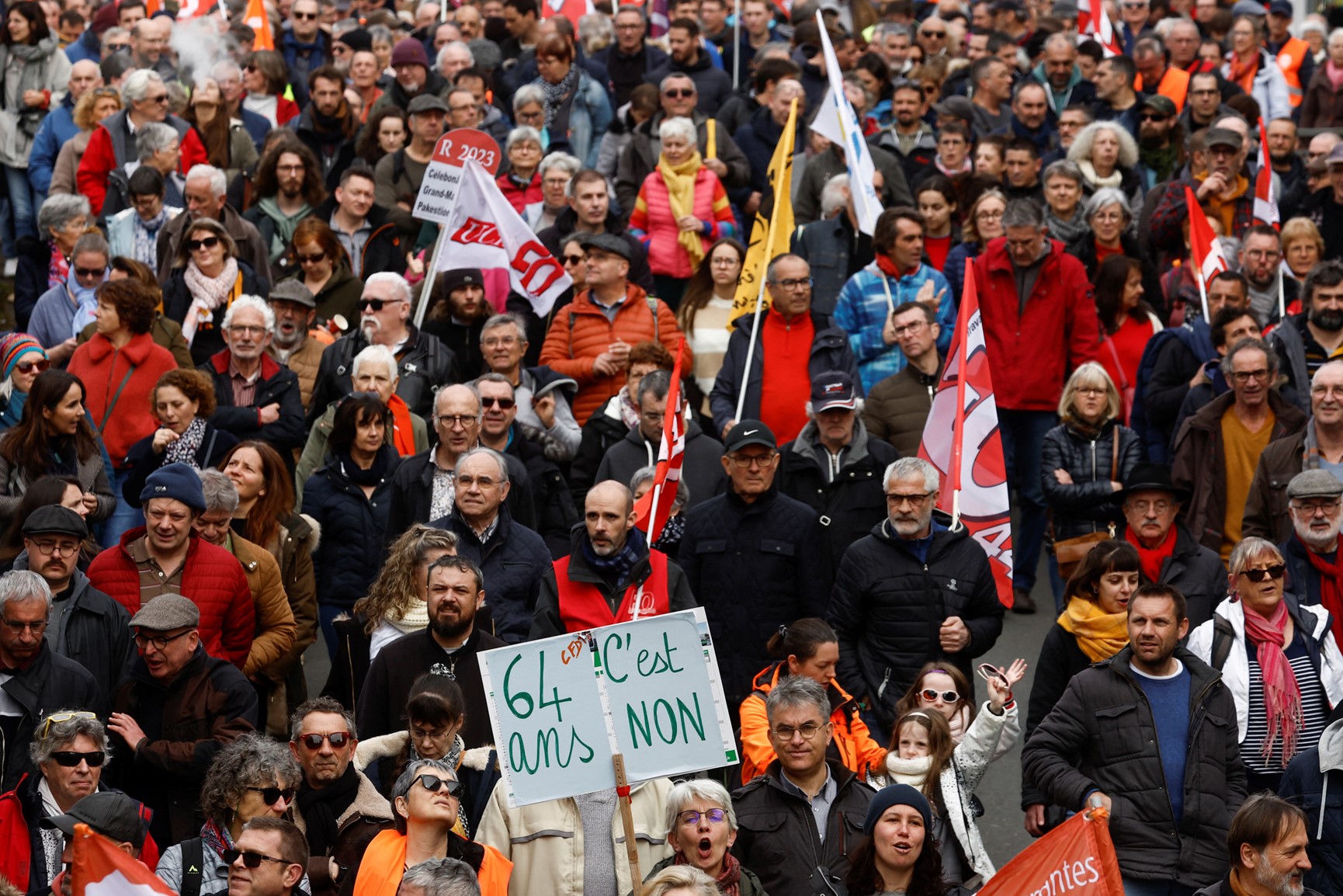Macron Government Attempts to Push Through Pension Reform
Liam Brucker-Casey
Co-Editor-In-Chief
On March 16th the French Government went forward and pushed forward a controversial bill that would raise the age of retirement from 62 to 64, resulting in massive discontent and wide scale protests and strikes.
The proposal would gradually push the retirement age in increments until 2030, a move that advocates say is a necessary step to sustain a country with an aging population and strained social safety net.

Instead of putting the legislation to a vote by the National Assembly, Macron and President Elisabeth Borne (who essentially operates as the President’s lieutenant), decided to use a special executive power to bypass a vote. The decision to deny lawmakers the chance to kill the pension bill comes after weeks of efforts to win over legislators to support the immensely unpopular bill. The Macron camp understood the political repercussions that would likely follow such a move, as it inevitably outraged lawmakers who felt the bill was being rammed into law, without following normal procedures, but in interviews Macron has voiced a belief that the change is necessary for budget viability, feeling the can could be kicked down the road no longer.
The special power utilized by PM Borne is allowed through Article 49.3 of the Constitution which allows the Prime Minister to pass a bill without approval from the National Assembly and can only be stopped if a motion-of-no-confidence is adopted and passed, two such motions were voted on following the maneuver, both votes failed and thus the bill is set to be signed into law by President Macron.
Many citizens were outraged by how the Government decided to push through with the change, as millions have taken to the streets to protest in the days following the bill’s passage. Widespread strikes have brought many aspects of France to a complete standstill, for example trash has continued to pile up in Paris as trash collectors have remained on strike for weeks. French trade unions had already been calling for strikes in January when the bill was yet to be passed, and the popular discontent has only grown, but Macron seems determined to implement the change, though political fallout will be severe. Both the major leftwing and rightwing parties have lambasted the change, threatening Macron’s centrist Party’s grip on power.
Contact Liam at liam.bruckercasey@student.shu.edu

